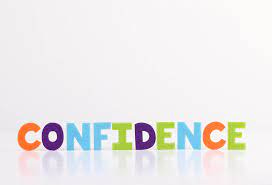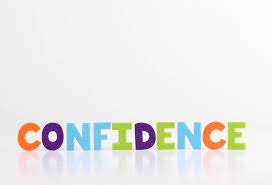Guest Writer - Will White
Like most people, I can find job interviews quite a daunting task. But it is important to remember that feeling nervous in the lead up to an interview is completely normal, in fact, it can be a good thing. Nobody is perfect at job interviews and everyone, at some point in their life, has failed an interview. Although it can be very disappointing, there is always something valuable to be learnt from these experiences. And as you gain more interview experience, you will grow in confidence and be able to answer questions with more flair and poise, you might even start to enjoy them! I have experienced being both an interviewer and interviewee, and below is a series of recommendations based on my own experiences that I hope will help you prepare and succeed:
Practice - If you are at college or university, their careers service might be able to support you practice your interview technique by conducting mock interview sessions. I have played apart in organising and running such sessions previously, and students have found them very beneficial. It is a great opportunity to get feedback on your strength and weaknesses, and iron out any bad habits. If you don’t have access to these types of services, see if any friends or family members would be willing to practice with you.
Read the job spec - This may seem obvious, but often what the employer is really looking for can be hidden in plain sight. Scan the job description and see if any key words jump out at you, you can prepare answers that are directly linked with these key words. Many descriptions will contain a list of essential or desirable skills and experiences, you should try to go through as many of these as you can and prepare answers that relate to each core skill.
Do your research - Of course you should make sure to read the job description carefully and make sure you understand the role. But try to go beyond that and get an understanding of the wider organization. Find out about what their values are and see if you can find any relevant information on how they are structured, or what the practices and procedures are. This level of research demonstrates that you are serious about the role, and that you are thorough and attentive.
When receiving feedback, this has often been the difference maker that stopped me from getting the job. You can never do too much research, so try to learn as much as you can.
Prepare examples and experiences - Any interviewer will expect a candidate to be able to back up their answers with relevant examples based on past experiences. Think about occasions where you have grown professionally and create a list. For example, try to recall an occasion where you had to deal with a challenging situation and how you overcame it, this will demonstrate resilience and an ability to handle pressure from your employer. Or think of a time you led a group project and demonstrated how you delegated tasks and gave clear instruction.
If you have limited work experience do not worry. You can use personal experiences to demonstrate your core skills too. For example, if you have children, you could use this as an example of being able to organize, instruct, and nurture others.
Structure your answers - Interviewers are often big fans of the STAR Method. This stands for Situation, Task, Action, Result. Take the past experiences you’ve thought of and break them down into these four stages. By using this method employers will be able to recognize how you managed the situation and how you developed as a result. In the heat of the moment, I can often forget about the STAR method, as I tend to waffle through long winded answers. But interviewers will always notice and appreciate it when you do use the method.
Body language - if your interview is in person, try to sit up straight, smile regularly, and make a healthy amount of eye contact. Avoid slouching, frowning, folding your arms, and staring at the ground, these actions can often leave a negative impression and you will appear disinterested.
Some people find these ques more challenging than others, as a more introverted person myself I can struggle with certain body language expectations, but these behaviours can be learnt and the more you do them, the better you will get.
Have questions ready - this is another way to express that you have an active interest in the role and employer, that you have ideas of your own, and you are assertive enough to express them. It is good to have a couple prepared, but it is very likely questions will come to you throughout the interview. Don’t just jump into asking about salaries, benefits, and holidays. Those topics can be brought up as they are important to know before accepting an offer. But try to make sure you also ask questions that are thoughtful and involve the work you will be doing.
I usually like to ask interviewers what they think the most challenging aspect of the job is, the answers can often be very interesting. I also think it is good to ask about expectations, especially during the probation period. It is good to get a concrete idea of how your performance will be measured and what will be expected of you. This also helps to understand the culture of the workplace.
Additional advice:
Make sure to dress appropriately. Make sure that you wear clean, smart clothes. You can find out what is appropriate when doing your research on the employer, or you can just ask beforehand. Personally, I avoid wearing a suit if I don't need to, but I ways wear smart simple shirt and trousers with black shoes.
I also recommend taking plenty of water. Nerves can cause dehydration and you will be doing a lot of talking for up to an hour.
Try to get a good night’s sleep if you can. Good interview preparation will help here. When I go to bed knowing that I’ve done everything I can do to succeed, I usually sleep much better, and therefore do better.
Be punctual. Lateness is not acceptable without a valid reason. If you are going to be late, make sure to contact the interviewer in advance to let them know.
Use proper English. Make sure that you speak clearly and don’t swear. This would be seen by many as unprofessional or offensive.
Take control. If you need to take time to think about your answer then that is fine, you can take as long as you need. And while I don't recommend skipping questions entirely, it is ok to ask to move on and the circle back later. I use this tactic frequently when stumped on a difficult question.
Prepare your settings. If your interview is remote, make sure the image on screen is clear and you are fully visible, adjust the lighting as you see fit. Try to keep the background as plain as possible, find a blank wall if you can.
And finally, remember that this is your opportunity to talk about yourself, so seize it! What’s the worst that’s going to happen? They don’t hire you, so what? It’s their loss and you’re on to the next one. And the next one. And the next one. And the next one.



